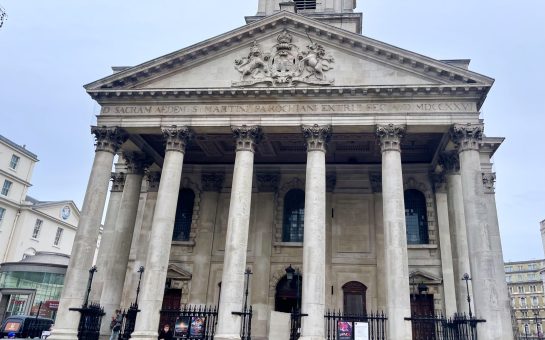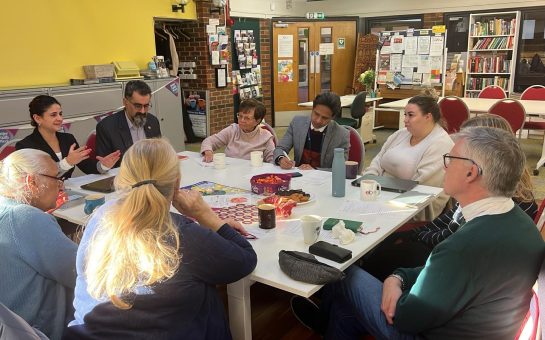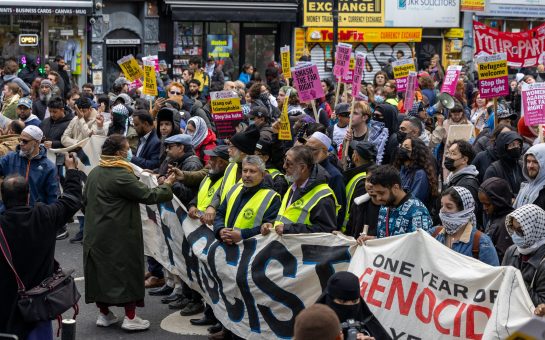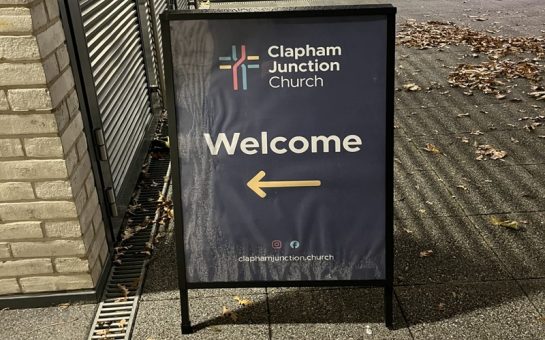Muslims across the UK will are beginning the observance of Ramadan this week, for a second time during the coronavirus pandemic.
For 30 days most of the UK’s approximately 3.7 million Muslims will fast from dawn till dusk, abstaining from eating and drinking.
It is one of the most important religious holidays for Muslims and characterised as a period of worship, self-reflection, and self-discipline where huge emphasis is placed on community.
The Holy month will be less restrictive compared to last year because limited outdoor mixing is possible and mosques are permitted to hold reduced congregations.
The manager of the London-based Imām Jazarī Institute Mohammed Motlib said: “The essence and spirit of Ramadan is felt through community activities, all of which have taken a toll during the pandemic for our collective safety.
“As Muslims, we should always see the positive in challenging times and I strongly believe this difficult period will allow us all to intensify our efforts to develop and self-reflect with the goal of better serving our communities.”
WHAT IS RAMADAN AND WHEN DOES IT START?
Ramadan is the ninth and holiest month in the Islamic lunar calendar and is believed to be time when the first verses of the Quran were revealed to the Prophet Mohammed.
The sighting of a crescent moon heralds the start of Ramadan and Muslims begin fasting from the following morning.
Many Muslims look to the Saudi Royal Court’s moon sighting committee to declare the start of Ramadan.
However, some will wait to witness the crescent moon in the UK and begin fasting from tomorrow.
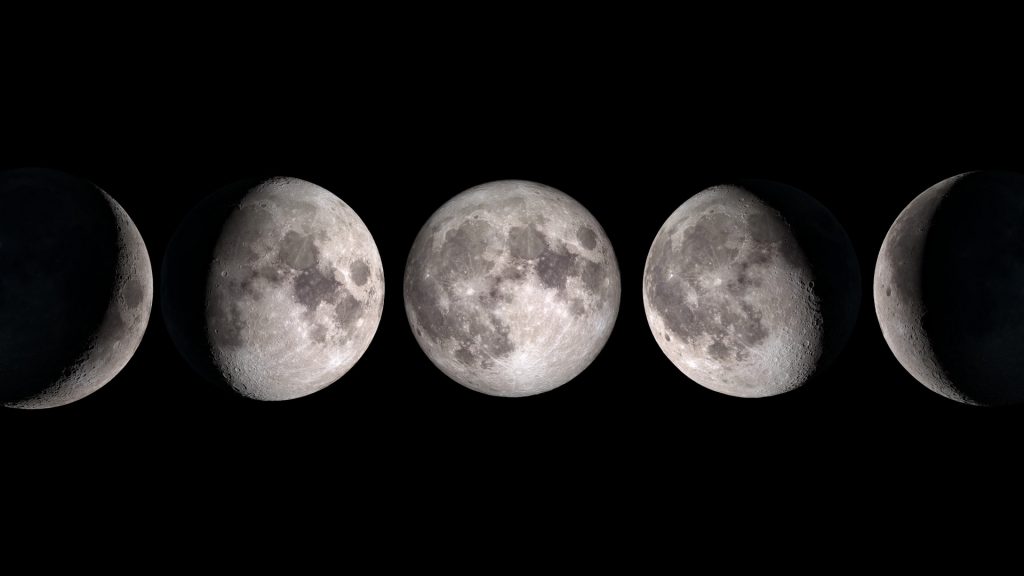
Since the lunar calendar is only 345 or 355 days long, the date of Ramadan usually moves back by around 11 days on the Gregorian calendar every year.
At the end of Ramadan Muslims will celebrate for three days in a festival known as Eid al-Fitr when the community and extended families gather to eat and exchange presents.
During Ramadan Muslims will fast during the day and abstain from eating, drinking, immoral behaviour, and vices such as smoking. It is intended to be a time of spiritual and physical renewal.
WHAT DO MUSLIMS DO DURING RAMADAN?
Fasting (Sawm) is considered one of the five pillars of Islam and during Ramadan it is obligatory for healthy young teens and adults, only young children, travellers, pregnant women, and the sick are exempt.
It is thought to help encourage self-discipline and empathy with the less fortunate, allowing Muslims to concentrate on worship, faith and helping the community.
The day begins early with a pre-dawn meal known as Suhoor, after which Muslims will not eat or drink until sundown with a meal known as Iftar.
Muslims in the UK will fast over 13 hours at the beginning of Ramadan this year, increasing to over 17 hours just before Eid when the days are even longer closer to the summer solstice.
Fasting times can vary around the UK and observers are advised to check local timetables for Suhoor and Iftar.
The fast is ‘broken’ at Iftar with dates and water, followed by a larger meal often in the company of friends and family.
Before the pandemic, Mosques would also host Iftar meals, feeding the less fortunate and bringing the community together for food and prayers without distinction for race or class.
In the UK, many Islamic centres and mosques host ‘open’ Iftar meals to foster cross-culture communication.
Good deeds are encouraged during Ramadan as it’s believed that Thawab (Reward) is multiplied and Muslims will often help the needy by providing charitable services and Zakat, another pillar of the Islamic faith.
Special nightly prayers called Tarawih take place daily, and Muslims are also encouraged to read the Quran and recite each of the 30 Suras over the 30 days of Ramadan.
RAMADAN AND COVID SAFETY
Last year Ramadan began on 23 April in a heavily restricted environment only 4 weeks after the first lockdown was announced.
At the time mosques were shut and all outdoor and indoor mixing was restricted, meaning everything communal only took place online.
Head of external relations for Ahmadiyya Muslim Community UK Mahmood Rafiq said: “We encourage our members to take part in the Covid-19 vaccination program and to pray for its success in ending this terrible pandemic.
“Muslims are responsible members of society who recognise that Coronavirus does not discriminate and affects everyone regardless of ethnicity or faith.
“We believe it is our civic duty to do everything possible to mitigate against the harm caused by the virus.”
This year, while some daily rituals are still online, mosques can open for smaller congregations and up to six people, or two households, can meet outside in London.
The British Islamic Medical Association (BIMA) has provided guidelines for Ramadan, advising venues to remain vigilant, and believers to wear masks, reduce exposure, and retain social distancing.
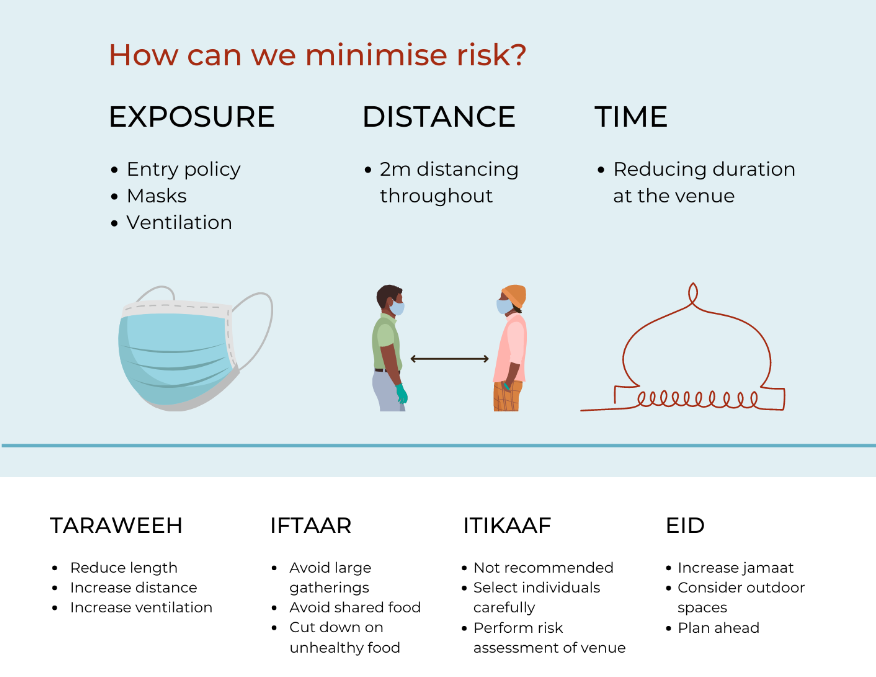
They have confirmed that taking either the Pfizer/BioNTech or Oxford-Astrazeneca vaccine during Ramadan will not invalidate the fast.
The Muslims Council of Britain also launched their Safe Ramadan guide, suggesting observers keep safe by doing their food shopping in larger quantities and organising communal prayers and iftar meals online.
The Fazal Mosque in Southfields usually hosts 150 people for congregational prayers but this year has reduced their services and is advising everyone to take the vaccine and do Tarawih prayers at home.
Suhoor and Iftar timetables for London can be found here.
